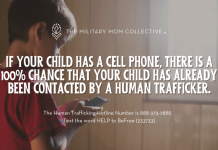Emotions and feelings run hot while patience seems in short supply these days.
The pandemic continues to amplify the cracks that may already exist in our relationships with our kids. Add-in not seeing friends, not getting enough exercise, and too much screen time, and it’s no wonder you might be losing it with your son!
Parenting boys can be challenging, even in seemingly perfect circumstances. That makes the goal of “never losing it again,” extremely unrealistic! What you can change and improve upon is what you do AFTER you’ve lost it.
Over the past 20 years, I’ve taught, trained, coached, and spoken to thousands of parents of boys, and what I’ve discovered is knowing how to respond AFTER a conflict is the key that begins to change everything. That positive change often comes most quickly to parents who are willing to look at themselves before they do anything else.
So, you first.
Strategy #1: Address Your Own Feelings

Do you ever feel guilty and overly judgy when you make parenting mistakes? It’s natural, but those feelings only tend to add more stress to the situation.
What if you could let them go?
What if holding compassion for your own anger and frustration was one of the best ways you could model compassion for him and his BIG feelings?
What if, in the heat of the moment, you gave yourself grace? If you approached him with greater emotional neutrality, how much more effective might you be?
So breathe, step away, and do whatever you need to do FIRST before another word passes your lips. Then, you can start to speak his language.
Strategy #2: Get Physical!

Boys actually WANT to talk about their feelings – but their vocabulary for expressing emotions can be limited.
The social messaging from his peers (and society) says, “Don’t feel. Don’t express your sadness, embarrassment, shame, depression, longing, loneliness, frustration, fears…”
All those feelings have to go somewhere.
But, for boys, the only outlet that seems to be acceptable is anger (either physically aggressive anger – outwardly expressed OR stony silence/depression – inwardly expressed). Anger can make even well-intentioned parents feel confronted, confused, and emotional and angry themselves.
If you understand why anger seems to be his first choice, you can give him physical outlets to help ease his built-up tension. Think of HEALTHY ways to physically move his energy: pillow fights, tickle fests, roughhouse wrestling, jumping on a trampoline, or running around the block. Giving him acceptable ways to MOVE can be a great way to connect with him and turn the sour mood around.
Many boys are actually starving for healthy, physical touch. They may not be as prone to ask for a cuddle or a hug but still, touch is a human need. In fact, asking for a hug can be the first step to bouncing back from conflict. Annie’s boys love “scratchy scratchy” on their backs, arms, and legs. Michelle says a tickle fest is the best post-conflict response in her family, “We connect and we laugh!”
Strategy #3: Speak in the Way He Can Hear You
Talking too much after a conflict happens – reasoning, nagging, pleading, and trying to get the situation resolved NOW – is one of the most common boy-parenting mistakes parents (especially moms) make. Talking too much only overwhelms his brain, which makes him angrier and/or shuts him down.
Surprisingly, some boys (and men) may take as long as seven hours before they’re ready to revisit an upset.
So, what can you do instead?
- Give some time for everyone to cool off. You can say, “I’m going to step outside and take some deep breaths to collect my thoughts on this.”
- It’s up to the adult to return and repair; don’t expect your kid to offer an apology first. Remember you are the example here.
- For boys, revisiting an emotional situation is best if they have a heads-up about it – “Hey, can we talk about what happened after dinner tonight?”
- Sincerely apologize. Admit where you think you may have overreacted, said something you’d like to rephrase, or simply say, “I lost it – can I have a do-over?”
- LISTEN to whatever he has to say. Allow for many awkward pauses without filling them in with your talking – he’s thinking.
- Invite him – and allow time – for him to respond – which may not be in the same conversation. If it isn’t, promise to circle back around – and then do it.
- State what you will do differently the next time – and then do it.
- Ask him what he’d like to see happen differently the next time. (Notice that you aren’t specifically asking him what HE would do differently.)
- Make a mutually agreed-upon plan for when/if things start to go off the rails the next time. Taking time out, having a ‘safe’ word, or a hand signal are ways to make that agreement.
- Saying I LOVE YOU – well, that just makes everything better. However, don’t expect him to respond in kind and don’t take it personally if he doesn’t.
And Keep These Boy-Friendly Communication Tips in Mind:
- Be okay without eye contact. Many boys aren’t comfortable with eye contact -, especially in an emotionally-charged situation. No need to take his lack of eye contact personally – this is about his comfort level, not yours.
- Doing something together (while moving) will help him communicate more easily. Washing dishes, going for a walk, tossing a ball, etc.
- Shoulder-to-shoulder is more comfortable for him. Try sitting next to him on the couch or standing beside him.
- For the win – go for a drive! Many moms report that their sons and husbands open up more easily when in the car!
Finally, give your son credit for the steps he is willing to take in working through conflict with you. The baby-steps and do-overs that you’re taking now are valuable lessons for all of his future relationships. As humans, we all lose it – that’s the easy part. Bouncing back, repairing, reconnecting – there’s the gold.
These are unprecedented times for parents! You need ALL of the support you can get. Claim your free “Successful Parenting During Corona Chaos: Parenting Guide” including 20+ actionable strategies to address balancing parenting & working from home, homeschooling, setting boundaries, and more via this link.
 Janet Allison is the Founder of Boys Alive! and the Co-Host of the ON BOYS Parenting Podcast. With more than 20 years of experience coaching parents, mentoring teachers, and being the featured parenting expert on both radio and TV, Janet loves empowering parents and teachers with proven tools and strategies to raise boys to be confident, caring, and capable adults.
Janet Allison is the Founder of Boys Alive! and the Co-Host of the ON BOYS Parenting Podcast. With more than 20 years of experience coaching parents, mentoring teachers, and being the featured parenting expert on both radio and TV, Janet loves empowering parents and teachers with proven tools and strategies to raise boys to be confident, caring, and capable adults.












Thank you for sharing! As a person who struggles with patience and staying calm in the face of the chaos my wild boys put out, I appreciate this so much. I’m trying to model good behaviors for them … the other day I was getting mad and they told me to take deep breaths so I guess it’s working. Ha ha. When I do mess up and yell, I apologize, say I am sorry, I was mad and yelled and I didn’t want to. I’ll try to do better next time. I love you. All we can do is admit we make mistakes and try to do better.
Comments are closed.